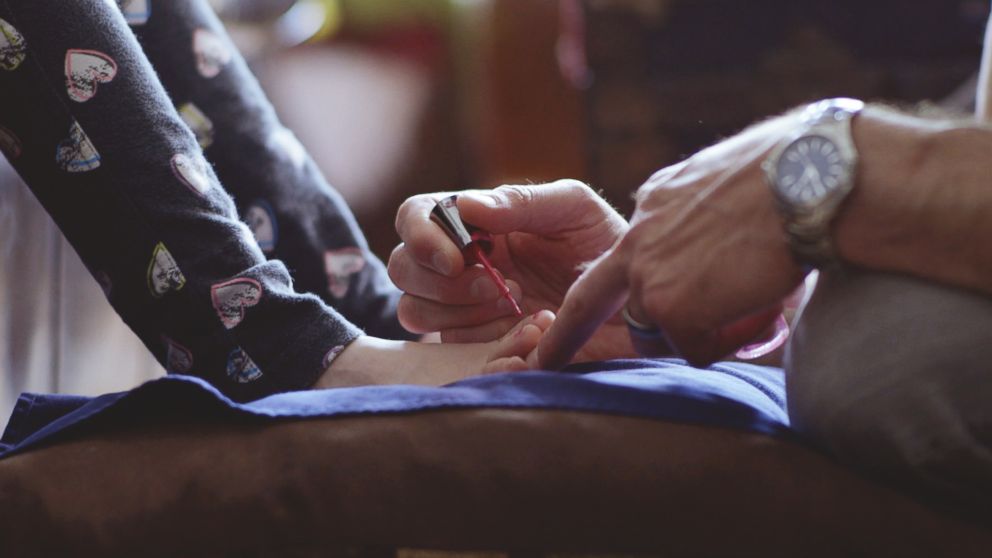Writing Away Societal Stereotypes, One Daddy Blog at a Time
Why dads are flocking to the web to share their stories and make their voices he

June 9, 2014— -- He is not stupid. He’s not hopeless, clumsy or inept at parenthood. And he’s definitely not quiet.
He’s a “daddy blogger,” a modern man with a voice and a platform for sharing funny stories, connecting with other dads, shifting societal expectations about fatherhood, and letting marketers know that the hapless dad character of years past no longer has a place in advertising.
Speaking up online may have been considered primarily in the mommy Web’s wheelhouse in the past, but now it’s daddy’s turn as well.
“We, as dad bloggers, have a specific voice,” says Adrian Kulp, a former executive at Adam Sandler’s Happy Madison Productions turned stay-at-home dad and author of the blog, Dad or Alive. “We’re all in it to be better fathers and to provide a different perspective than mom might have.”
More influence, more purchasing power
According to a 2012 online survey of 1000 dads across the U.S. by Euro RSCG, 52 percent of "Digital Dads"—online influencers who are shaping trends—and 20 percent of "Average Joes" who were surveyed have written about parenting online via a blog, Facebook or another site.
These digital dads are creating a new narrative around fatherhood, says Kulp. Their perspectives are refreshing and raw, adding some masculinity to a growing parent publishing world that is still largely dominated by women.
“Dad bloggers can make you cry an honest tear in one paragraph and have you gut-laughing in the next,” says Jeff Bogle, author behind Out With the Kids. “We’re an honest bunch trying to tell honest stories of our parenting journeys.”
While fellow dads have followed daddy bloggers for years, marketers have been slower to pay attention to this growing demographic. But a study shows fathers wield more household purchasing power now than they once did. According to research by Nielsen, fathers spent an average of $34.81 per grocery store trip in 2010, compared with $27.49 in 2004. That’s something marketers pay attention to.
Kulp enjoys the way the role of fathers has shifted in some families. “I do the grocery shopping every single week. I plan the meals, take the kids to the store and load the cart up,” he says. “Moms aren’t making all the household decisions anymore.”
Shifting “foolish father” stereotypes
Daddy bloggers are unimpressed with dumb dad depictions, and are using their voices to put a stop to them, says Mike Adamick, the voice behind his eponymous blog and a regular “Daddy Issues” columnist for Jezebel.com.
The stereotypical media depictions are consistently one of the main topics of conversation at the annual Dad 2.0 Summit — the premier gathering of the dad blogging community.
“The blundering dad image is horrible for families,” says Adamick. “It makes it seem normal for dads to put in zero effort, which affects how society expects us all to behave. We’re going to see more companies pay attention to what we have to say.”
Changes in perception, changes in expectations
Daddy bloggers now have the platform and purchasing power to influence marketing, but their most important influence remains the one they have on their children.
“Modern dads are capable, hands-on and excited to raise wonderful, tolerant and open-minded children,” says Bogle. A great example of a modern dad doing it all, he says he’s just as likely to pack a lunchbox, as he is to pick out an outfit for a school dance.
“I believe that more kids will grow up to be people who challenge the outdated version of what a dad ‘should be’ and is capable of,” says Bogle. “Hopefully, more boys will grow up to be fathers who won’t hesitate to demand paternity leave to spend those unforgettable early moments with their children. And maybe some of those boys will dream of becoming at-home dads themselves, guys who serve as the primary caregiver for their own children.”
“And hopefully, young women will begin to demand more of the men in their life.”




